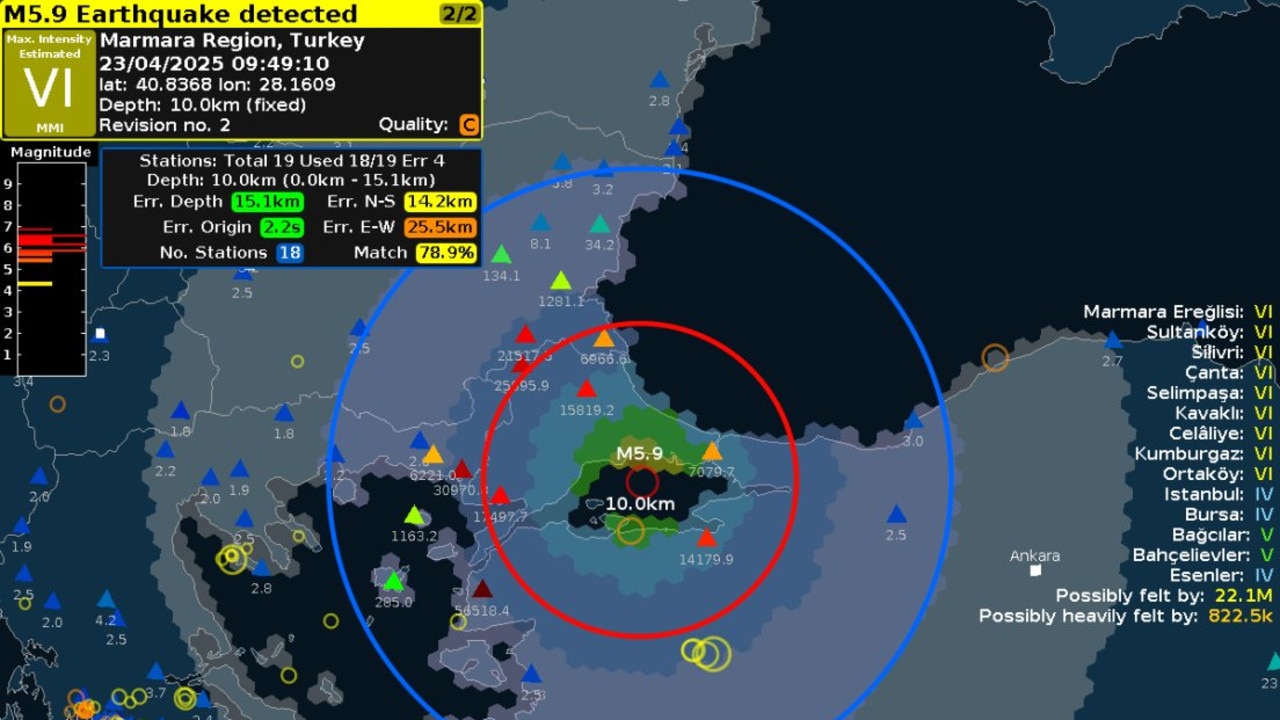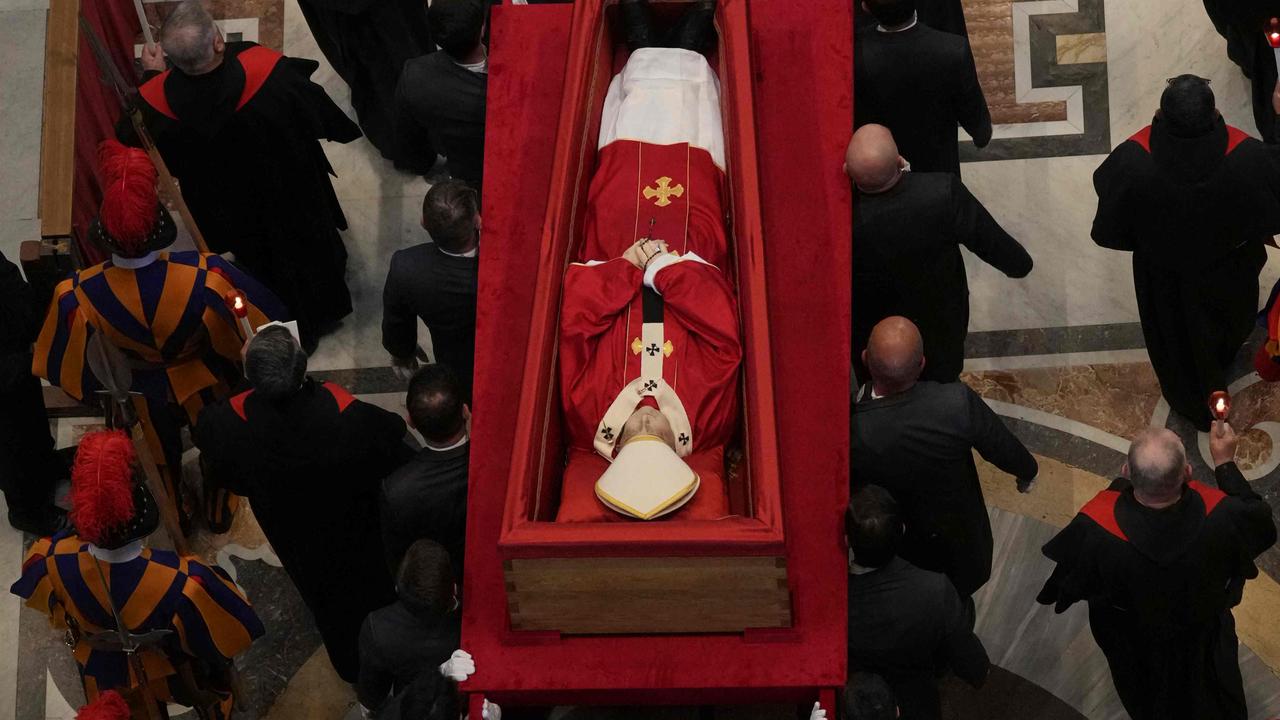Who is UKIP leader Nigel Farage?
HE’S the leader of a party once said to be full of “fruitcakes, loonies and closet racists”. Now Nigel Farage’s got the last laugh.
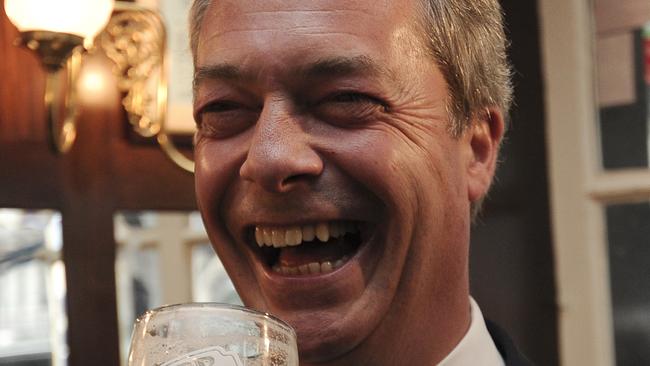
NO ONE took Nigel Farage seriously, not even Nigel Farage.
Despite the bluster, the leader of the UK Independence Party predicted Leave would lose and was just as surprised as anyone else when Britain voted to exit the European Union.
Now the charismatic 52-year-old, who is often photographed with a pint of beer, is being taken seriously, and he’s loving it.
Unlike Conservative politician Boris Johnson who looks decidedly sober at the idea of a British exit from the EU, Mr Farage appears jubilant.
During an appearance in the European Parliament on Tuesday he was jeered at, but hit back at the haters saying: “You all laughed at me. Well, I have to say, you’re not laughing now, are you?”.
Despite himself being a paid member of the European Parliament, Mr Farage has been working towards putting himself out of a job for 17 years.
As former Belgian prime minister Guy Verhofstadt said on Tuesday: “Finally we will be getting rid of the biggest waste in the EU budget — that we have paid for 17 years of your salary.”
WHO IS NIGEL FARAGE?
Farage was born in 1964 to an affluent family in Kent, southeast England. His father was a stockbroker and an alcoholic and his parents divorced when he was five.
He was educated at one of England’s top private schools, Dulwich College in London, where he says his headmaster saw him as “bloody-minded and difficult”.
Rather than attending university, he followed his father into the City of London, where the former commodities trader says boozy lunches were the norm.
He has survived a string of misfortunes — a serious car accident at age 21 and testicular cancer in his 20s as well as a plane crash.
Mr Farage has four children — two boys by his first wife and two girls with his German second wife Kirsten.
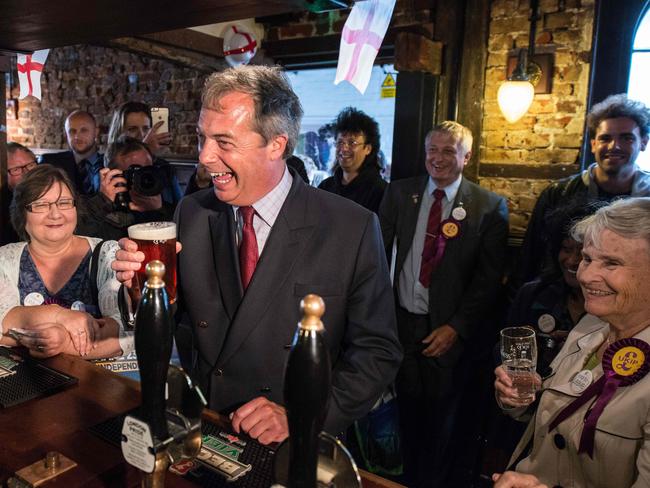
THE RISE OF UKIP
It’s no exaggeration to say that Nigel Farage has devoted his career to getting Britain to leave the EU.
During his school days, Mr Farage was a member of the UK Conservative party but left when it signed the Maastricht Treaty in 1992, the treaty that essentially created the EU.
“I signed up because I used to have Sunday lunch with my parents and grandparents and listen to them talking about (how) what they used to think was a great country was going down the tubes,” Mr Farage told the New Statesman of his Conservative membership.
He became a founding member of the UK Independence Party (Ukip) in 1993 and almost single-handedly made the party a major force in British politics, even though it only has one MP in the House of Commons and was once dismissed by British Prime Minister David Cameron as a party of “fruitcakes, loonies and closet racists”.
Ironically, it was in the European Parliament, the body that makes laws governing the EU, that Mr Farage found a voice.
Despite several attempts to get a seat in the UK parliament, he has never been successful.
He finally gained a seat in the European Parliament in 1999, aged 35.
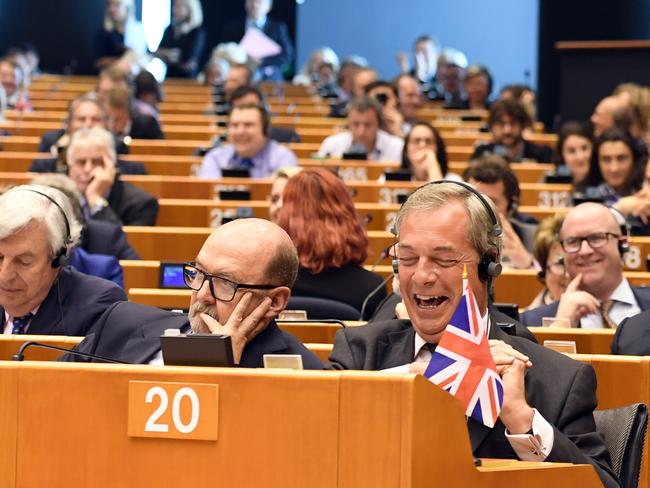
Mr Farage became Ukip’s leader in 2006 before standing down in 2009 and then being re-elected the following year, when Ukip’s ascent really began.
His straight-talking, man-on-the-street style resonates with many older, white, blue collar voters and is reminiscent of a bygone era when the economy felt stronger, immigration was lower and Britain was great.
It was the rise of Ukip, draining away support from the Conservatives, which prompted Mr Cameron to pledge a referendum on EU membership in 2013 if the Conservatives formed a majority government at the next election.
Many at Westminster believe Mr Cameron never thought he would have to honour that pledge as he was governing in a coalition government at the time and his party looked unpopular.
But the Tories swept to a surprise victory in last year’s general election, forcing Mr Cameron to call the vote.
A CONTROVERSIAL FIGURE
Mr Farage frequently draws criticism with stunts such as a poster showing a queue of migrants to argue Britain should take back control of its borders.
He has publicly backed Australia’s tough immigration stance and believes Britain has made a “terrible mess” of its policy.
“It’s not about colour,” Mr Farage told the New Statesman in 2014. “But it is about identity, and it is about community, and all the things I told you that I rejoice in. You know, people mixing together — being different, but mixing together, and having commonality.
“It’s wholly irresponsible to have totally open borders to half a billion people, but if you have an Australian-style points system and you control the quantity and quality of who comes, you know, people will sign up for that.”
He said there was no longer “left” or “right” in politics and did not rule out going into coalition with Labour at the last UK election. “I’d do a deal with the Devil if he got me what I wanted.”
During the Leave campaign Mr Farage embarked on a nationwide tour on a battle bus well stocked with alcohol and blasting out the theme to the film The Great Escape, with almost daily speeches.
But he can also be a polarising figure and was kept away from the official Leave campaign — spearheaded by former London mayor Boris Johnson — for fear that he could alienate voters.
His unveiling of an anti-migrant poster reading “Breaking Point” last week just hours before pro-EU British politician Jo Cox was killed was condemned even by fellow Leave campaigners.
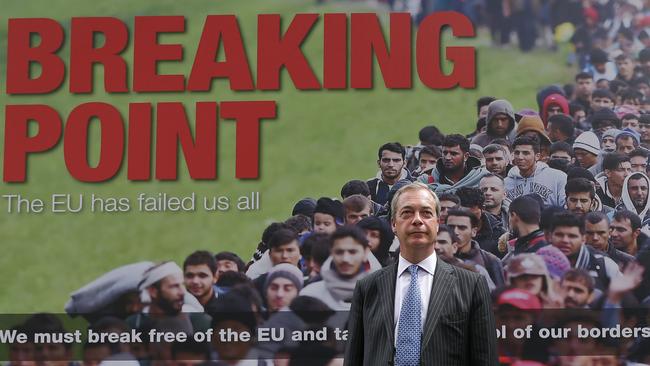
Michael Gove, the anti-EU Justice Secretary, said he “shuddered” when he saw it.
Following the Brexit result, which Mr Farage has dubbed “independence day”, he faced criticism for his comment that it had been achieved “without a single bullet being fired”. The result came a week after Ms Cox was shot and stabbed to death.
“This will be a victory for real people, a victory for ordinary people, a victory for decent people,” Mr Farage said.
“We have fought against the multinationals, we have fought against the big merchant banks, we have fought against big politics, we have fought against lies, corruption and deceit.
“And we will have done it without having to fight, without a single bullet being fired, we’d have done it by damned hard work on the ground.”
Now the politician who many did not take seriously, looks likely to play a leading role in the future of one of the world’s leading economies.

